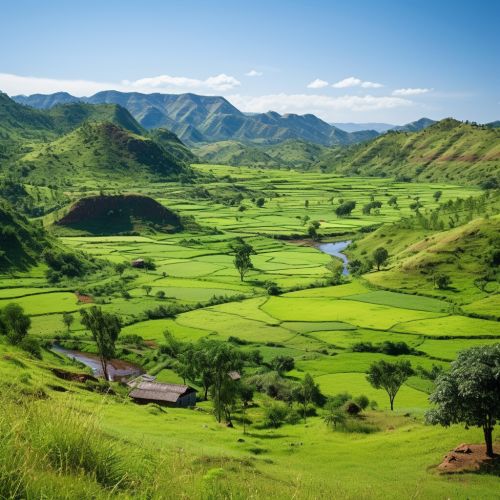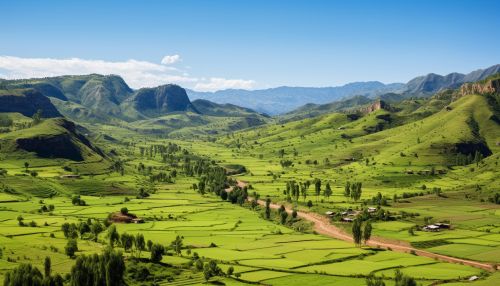Island Countries
Overview
An island country is a country that is primarily composed of one or more islands or parts of islands. As of 2021, there are 46 sovereign states that fall under this description, ranging in size from vast archipelagic states such as Indonesia and the Philippines, to tiny island nations like Nauru and Tuvalu. Island countries have unique geographical, political, and economic characteristics that set them apart from continental countries.
Geography
Island countries are characterized by their isolation and limited land area. This isolation can lead to unique biodiversity, with many species found nowhere else on Earth. For example, Madagascar, the world's fourth-largest island, is home to thousands of unique species of flora and fauna.


Island countries often have a high degree of geographical diversity within a small area. For instance, the island nation of New Zealand features mountains, beaches, forests, and lakes within a relatively small land area.
Political Systems
Island countries have a wide variety of political systems. Some, like Iceland and Ireland, are republics with a parliamentary system of government. Others, like Jamaica and Barbados, are constitutional monarchies that recognize the British monarch as their head of state. There are also a few absolute monarchies among island countries, such as Brunei and Tonga.
Economy
The economies of island countries are often heavily influenced by their geography. Many island nations rely on tourism, fisheries, and agriculture as their main economic sectors. For example, the Maldives relies heavily on luxury tourism, while Fiji has a diverse economy with a strong emphasis on sugar exports and tourism. Some island countries, such as Singapore and Hong Kong, have overcome their geographical limitations to become global financial centers.
Challenges
Island countries face unique challenges. Their isolation can make transportation and communication difficult and expensive. They are often heavily dependent on imports for goods and resources, which can make them vulnerable to global market fluctuations. Additionally, many island countries are particularly vulnerable to the impacts of climate change, including sea-level rise and increased frequency and intensity of storms.
